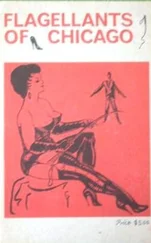“All these catastrophes are because of that lowlife Jeff!” Ra’fat shouted suddenly, but she screamed, “Don’t call him names. He’s better than you. He’s poor and unemployed but he’s genuine. He loves me and I love him. We’re not phony like you.”
She turned around suddenly and headed for the door, but he followed her to keep her from leaving. She pushed him away from her, but he stepped forward quickly and embraced her from behind, saying in a loud voice, “I won’t allow you to destroy yourself.”
“Let me go,” she shouted as she pushed him with all her strength, but he clung to her, putting up with her blows on his body. She exerted a strenuous effort to struggle free, and suddenly her muscles convulsed violently and she began to cry. He held her tightly. She calmed down in his embrace. They clung to each other in total silence. After a few moments she said in a different voice, calm and deep, as if she had awakened from a dream or come back to consciousness after an attack of nerves, “I have to go now.”
“Do you want some money?” She looked hesitant then said in a soft voice, “Give me a hundred dollars and I’ll repay it in a week.”
He took out his wallet and gave her a bill that she took quickly and put nonchalantly in her pants pocket. He smiled and said, “Do you want more money?”
“We’re doing okay. In a few days Jeff will start his new work. He’s found an excellent job at a brokerage firm.”
He was sure she was lying. He looked at her affectionately and said, “Can you tell me your new address?”
“I can’t.”
“I just want to know that you’re all right. I won’t bother you. I won’t visit you unless you ask me.”
“I will get in touch with you. I promise.”
She seemed as if she had regained her old tenderness suddenly. He hugged her again and kept showering her with kisses on her face and hair until she gently pushed him away. She looked at him with a faint smile then planted a quick kiss on his cheek and hurried out.
Dr. Friedman sat behind his desk and asked Tariq to sit down. He bowed his head and looked at his hands, which he had clasped in front of him, then blushed a little as he usually did when he started to speak and said, “Ever since I’ve become chairman, I’ve always been enthusiastic to admit Egyptian students because they’re intelligent and hardworking. Of course from time to time there might be a bad student, but that’s the exception, not the rule. You, for instance, are an excellent student: you’ve obtained early and good results in your research and you got straight As in all your courses.”
“Thank you,” Tariq murmured gratefully. Dr. Friedman cleared his throat, opened his desk drawer, and took out some papers, which he spread in front of him then went on, still avoiding looking at Tariq. “Your outstanding practical work makes it my duty to talk to you frankly: your standards have suffered greatly over the last few months. This is the fourth test in which you got a poor grade after previously always having a perfect score.”
Turning pale and seeming to have lost his powers of speech, Tariq kept looking at him. Friedman held the answer sheets and said in an angry tone, “I was shocked when I saw your recent performance. You’re making elementary mistakes that don’t seem to have come from a student of your diligence. Doesn’t that make you wonder why your grades are suffering?”
Tariq remained silent, his face growing paler. Friedman smiled and said in a sympathetic voice, “Listen, Tariq. You have a great opportunity to make your future. Life in America has drawbacks, but its big advantage is that it gives everyone a chance: if you work hard, you’ll achieve your goals. This is what makes this country so great. What you can accomplish here you cannot accomplish anywhere else in the world. My advice to you is to not let your private life distract you from your work.”
“But. ”
“I don’t want to pry; I just want to convey to you my own experience. I think you understand me well. I used to be a young man like you, and during my academic career I’ve suffered emotional jolts: happy and unhappy relationships that often affected my performance. But I learned how to keep my emotions in check and go back to work. Nothing is harder than work, but it is the only value that remains.”
Friedman got up and shook Tariq’s hand warmly.“Take care of your work, Tariq, and think of me like a father. If you need any help, don’t hesitate to ask. Even if you just need to talk about your problems, I’ll always have time for you.”
“Thank you, Doctor,” Tariq said gratefully.
Friedman placed his hand on Tariq’s shoulder and said as he saw him to the door, “Unfortunately the decline in your grades makes it mandatory for the department to give you a warning. That’s spelled out in the rules. You’ll receive the warning within two days. That’s bad, of course, but it is not the end of the world. If you work hard and regain your standing we can annul the warning as if it were never issued.”
Tariq looked in silence at Dr. Friedman. He couldn’t speak and was unable to concentrate on his surroundings. Distraught, he walked down the corridor with heavy steps, staggering as if he had received a violent blow to the head. Dark and misty pictures kept appearing and vanishing in his mind. He kept walking, so lost in thought that he passed the dorm without realizing it. He knew that his performance had suffered recently, but he hadn’t made much of it. Whenever he got a bad grade he’d say, “I didn’t do well in this test, but I’ll do better next time.”
Dr. Friedman had made him look in the mirror and see reality. He was falling to the bottom. His academic future was threatened. Today they had issued him a warning; tomorrow they’d expel him like Danana. The difference was: Danana was supported by the Egyptian government. As for him, if they dismissed him he would be lost forever. What had happened to him? How did Tariq Haseeb, the genius, the legend of academic superiority, come to fear failure and expect expulsion?
Tariq closed the apartment door calmly then threw himself onto the bed with all his clothes on; he didn’t even take off his shoes. He stared at the ceiling in silence for about half an hour then got up, left his apartment, and took the elevator to the seventh floor. He stood in front of Shaymaa’s apartment hesitantly, and then rang the bell two consecutive times: that was the code that Shaymaa knew, and she would hurry to him, opening the door as if she had been waiting behind it. This time she didn’t open up. He thought she had gone out for one reason or another. He called her and found the telephone turned off. He rang the bell again. A long time passed, and he thought of leaving. Finally she opened the door. She was wearing her house clothes and had a scarf on her hair. She had not preened herself as usual for their meeting. She didn’t say a word but turned and made room for him, so he could enter, and then she sat in front of him on the sofa in the living room. In the light he saw that her eyes were bloodshot and her face wet from tears.
“What has happened?”
She remained silent, avoiding looking at him, which added to his apprehension. He went over and placed his hand on her shoulder. She pushed it harshly.
“What’s wrong, Shaymaa?” She bowed her head for a while then started sobbing, saying in a breaking voice, “A catastrophe, Tariq.”
“What happened?”
“I’m pregnant.”
He stood there looking at her as if he didn’t understand, as if frozen in place. He was no longer able to think. His consciousness was scattered, broken into thousands of little pieces. He began to notice things around him as separate sights unconnected by anything: the lamp on the side table, the fridge with its humming sound, the floor covered with thick dark brown carpeting. Shaymaa suddenly got up and began to slap her face with her hands and scream, “Now do you know the catastrophe, Tariq? I am pregnant in sin, Tariq. In sin!”
Читать дальше
Конец ознакомительного отрывка
Купить книгу












